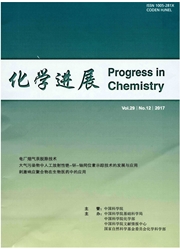

 中文摘要:
中文摘要:
以Ni、Fe、Co等3种不同金属掺杂的TiO2介孔材料作催化剂对中药渣进行催化裂解,研究不同催化剂对生物油产率及油品的影响,采用热值分析和气质联用(GC-MS)分析裂解油的特性,利用N2吸附-脱附对催化剂进行表征。研究表明,Ni/TiO2的催化效果优于Fe/TiO2和Co/TiO2,Ni/TiO2作催化剂时,裂解油中脂肪烃和烷基苯的种数最多,且其中与汽油或柴油相近的组分占大多数,而芳香族化合物数量明显较少。在Ni/TiO2的催化作用下,大分子中的氧多以H2O分子的形式脱去,因而生物油中含水率较高,导致其热值降低。
 英文摘要:
英文摘要:
Three metal-doped mesoporous samples(Ni/TiO2、Fe/TiO2 and Co/TiO2) have been synthesized, characterized and tested as catalysts in the herb residue catalytic pyrolysis process. The effects of catalyst on the yield and quality of bio-oil were examined through the low heating value (LHV)and GC-MS analysis. The N2 adsorption-desorption was also employed to characterize the structure of the catalysts. Ni/TiO2 showed better catalytic activity than Fe/TiO2 and Co/TiO2. The results indicated that the Ni/TiO2 catalyst enhanced the formation of aliphatic hydrocarbon and alkyl, while the contents of aromatic apparently decreased significantly. Most of the chemical composition was similar to that of the petrol or the diesel. Meanwhile, oxygen in molecules was mainly removed in the form of H2O, leading to a lower heating value.
 同期刊论文项目
同期刊论文项目
 同项目期刊论文
同项目期刊论文
 期刊信息
期刊信息
